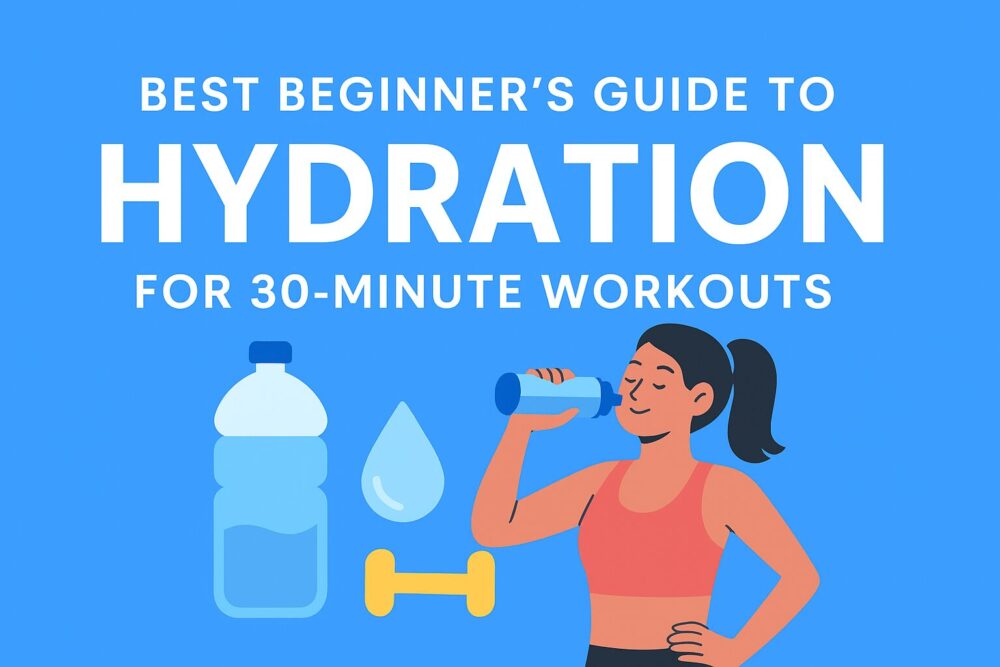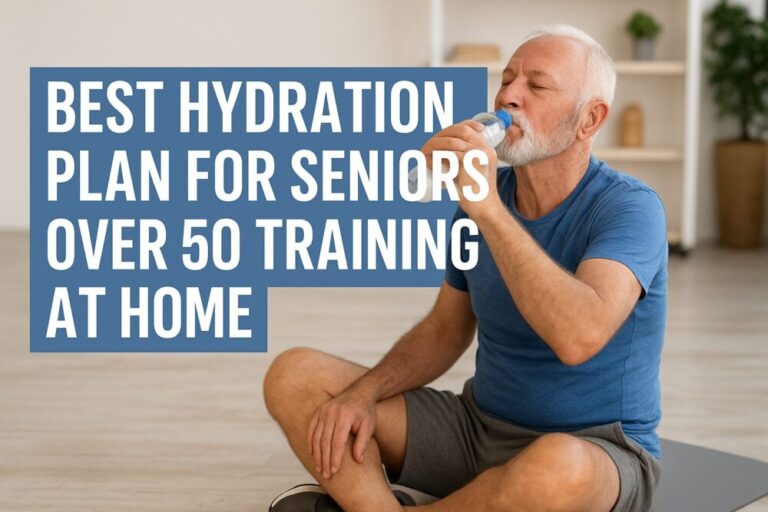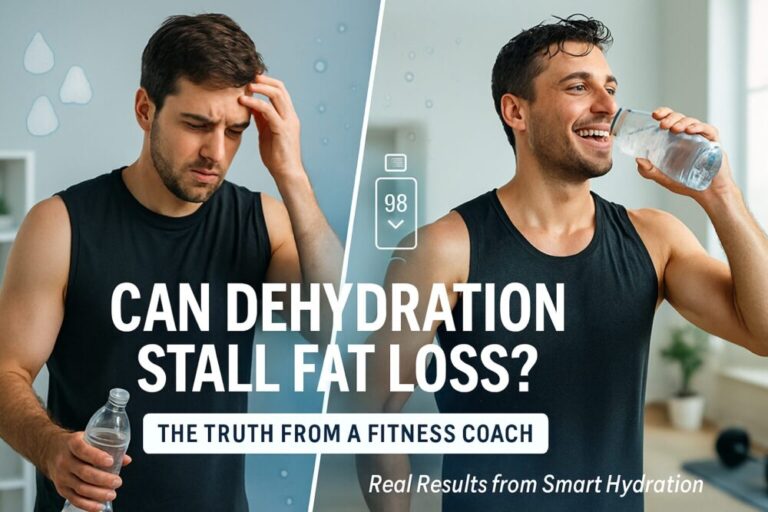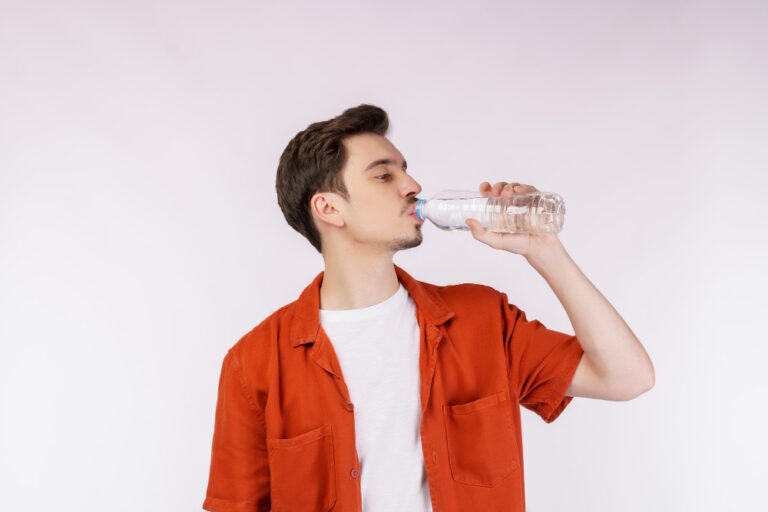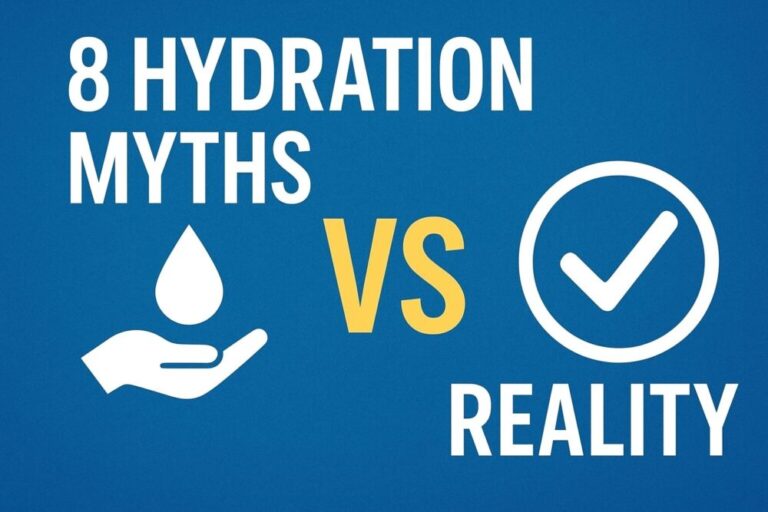You must’ve already known from what we said in our previous articles that Hydration is the secret sauce that keeps your joints happy, your muscles firing, and your focus razor-sharp.
This beginner’s guide to hydration for 30-minute workouts will equip you with science-backed sip strategies, but if you want the big picture on daily needs, workout-specific hydration, and recovery, our ultimate guide to hydration breaks it all down.
- Why You must have a Hydration for 30-Minute Workouts Plan ?
- Smart Pre-, During-, and Post-Workout Hydration Plan
- Pre-Workout Hydration for 30-Minute Workouts
- Quick Summary Table: Hydration for 30-Minute Workouts
- What Happens If You’re Not Hydrating Right?
- FAQ: Hydration for 30-Minute Workouts
- Conclusion
Why You must have a Hydration for 30-Minute Workouts Plan ?
You might scoff: “It’s only half an hour!” but trust me, even short workouts can seriously sap your hydration. Losing just as little as 2% of your body weight in fluids can make your heart work harder and hinder performance.
Dr. Sarah Eby, a sports medicine specialist, explains that dehydration thickens your blood ,making oxygen delivery harder and hampering muscle function and joint lubrication, basically, your body’s fluid mechanics shift from smooth sailing to trudging through molasses.
Smart Pre-, During-, and Post-Workout Hydration Plan
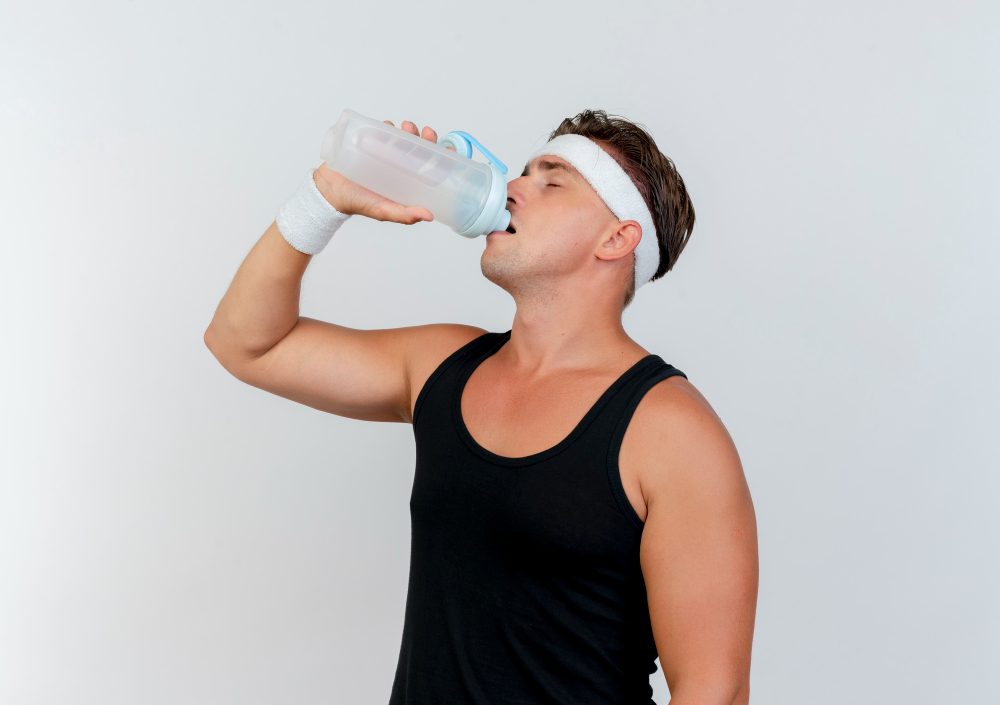
Pre-Workout Hydration for 30-Minute Workouts
Your hydration for 30-minute workouts should start hours before you press play on your workout video. About two to three hours before your session, drink 17–20 ounces (500–600 ml) of water. This pre-hydration step is essential because it tops up your fluid reserves so you begin your workout in peak condition.
Then, roughly 20–30 minutes before your workout, have another 7–10 ounces (200–300 ml) to make sure your body is fully prepared. Skipping this step means starting your 30-minute workout already behind on fluids, and that’s a shortcut to early fatigue.
During Hydration for 30-Minute Workouts
During your 30-minute workout, hydration is about maintenance, not massive intake. Aim for 7–10 ounces (200–300 ml) of water every 10–20 minutes, which usually means one or two small sips during the session.
Since hydration for 30-minute workouts doesn’t require the same level of fluid replacement as longer sessions, this steady sipping is enough to keep your performance sharp. If your workout is high-intensity or in a hot environment, a couple of extra sips may help, but avoid overhydrating and feeling heavy.
Post-Workout Hydration for 30-Minute Workouts
Finishing your session strong doesn’t end when you drop the dumbbells or roll up the yoga mat, hydration for 30-minute workouts continues after the last rep.
Replace the fluids you’ve lost through sweat by drinking 16–24 ounces (500–700 ml) for every pound of body weight lost during the workout. Even without a scale, you can simply sip steadily for the next 30–60 minutes. This post-workout hydration aids muscle recovery, regulates body temperature, and keeps your energy up for the rest of the day.
Quick Summary Table: Hydration for 30-Minute Workouts
| Time | What to Do |
|---|---|
| 2–3 hours prior | Drink 17–20 oz water |
| 20–30 min prior | Add 7–10 oz more |
| During | Sip 7–10 oz every 10–20 minutes |
| After | Rehydrate with 16–24 oz per lb lost |
| Always | Use a water bottle, set reminders, monitor urine |
Don’t rely on guesswork, use our Water Intake Calculator crafted with fitness enthusiasts in mind. It factors in your weight, workout intensity, and environment to deliver precise hydration targets. If you’re doing short but intense sessions like HIIT, check out our guide on hydration needs for HIIT workouts at home to fine-tune your approach.
What Happens If You’re Not Hydrating Right?
According to American College of Sports Medicine (ACSM), dehydration-even mild-can sneak up on you. Look out for:
- Muscle soreness that lingers too long for such a short session
- Fatigue, cramps, or slower performance
- Dizzy spells or reduced coordination
- Dehydration increases core temperature and cardiovascular strain, which can contribute to dizziness and coordination issues.
- Muscle cramps are more likely when fluid and electrolyte balance is disrupted.
- Overhydration without electrolyte replacement can lead to hyponatremia, which in rare cases is life-threatening.
And on the flip side, overhydration isn’t harmless, rare cases of water intoxication and hyponatremia have popped up in endurance settings. But devoting to a smart sip routine keeps you safe and effective.
FAQ: Hydration for 30-Minute Workouts
Q: Should I drink electrolytes even for a 30-min session?
A: Probably not, water’s enough unless you’re sweating buckets or training in extreme heat.
Q: Can I skip pre-hydration if I’m running late?
A: It’s better not to! A small sip before you start can minimize early fatigue.
Q: What if I forget to rehydrate after?
A: Your recovery will suffer. Even short workouts need post-fluid to reset your body.
Conclusion
Hydration is less about chugging half a gallon at once and more about smart timing. Whether you’re lifting weights or bodyweight training, knowing how much water to drink before and after strength training at home will help you adapt these principles for muscle growth and recovery.
Nail the pre, during, and post hydration, and you’ll feel the difference in your strength, endurance, and recovery. Best of all? Our Water Intake Calculator gives you personalized hydration without the fuss.

